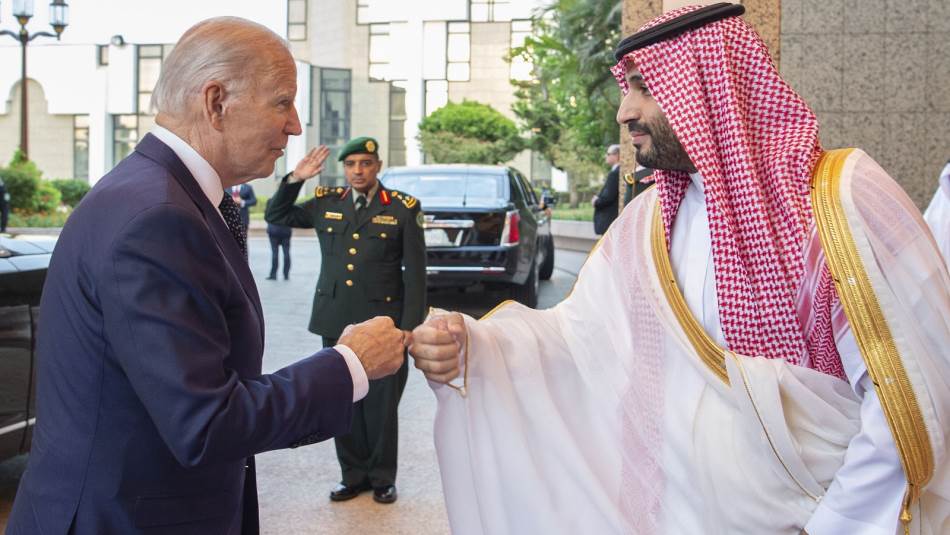In his latest article, Thomas Friedman gave impetus to the rumours that have been circulating for months about a grand bargain in the Middle East, the main subject of which is Saudi Arabia’s normalization of its relations with Israel in return for granting Riyadh a permanent security agreement.
As we have been for more than a decade, we as Syrians read any change in the atmosphere in the hope that it will bring with it a sign or a sign of the end of our worsening tragedy. What does this deal hold for us if it happened?
Damascus Slams Canada and Netherlands’ Objections Over ICJ Session on Alleged Crimes
At the highest level, the deal that Western analysts are trying to define draws lines of separation between two major camps, the United States and its Western and Middle Eastern allies on the one hand, and China and its allies from the countries of the former Soviet Union, led by Russia, and their Middle Eastern partner Iran, and the countries and powers that revolve in the orbit of the ruler Al-Faqih, and it may result in what can be described as a “mini-Middle Eastern NATO” that includes in its membership a number of countries in the region led by Israel and Saudi Arabia with a decisive role for Egypt, and this entity may gradually replace Turkey as a strategic ally of the West in this region with the rise of Ankara’s independence tendency. and more involvement in the Eurasian partnership.
Granting a security agreement with Saudi Arabia has been a matter of long controversy in the US administration over the past years, and the argument of its opponents, from the Democratic Party in particular, was the refusal to give security guarantees to a repressive state, but the move of Saudi Crown Prince Mohammed bin Salman towards China and Russia, and his rebellion Washington, during the oil production cut crisis, following Russian President Vladimir Putin’s invasion of Ukraine, should change the convictions of many of these hardline rejectionists. Today, there is talk about the sudden social updates that Saudi Arabia is witnessing, about the man who may rule the richest country in the region for half a century, and the need to deal with him rationally and farsightedly.
For their part, the Saudi leaders have received warnings of delay in concluding a deal, as the Democrats can agree to grant security commitments if it is in the form of a partnership with Israel, as long as it will be sponsored by Democratic President Joe Biden, but they will return to the tone of the “repressive state” in what If the deal was sponsored by a Republican president, then the time available for Riyadh to make its decision is no later than the end of the current year.
It is clear that US National Security Adviser Jake Sullivan is the architect of this deal, which, if completed, will be one of the most important stations in the course of his meteoric rise, and he recently arrived in the region in conjunction with a brief announcement for the first time by President Biden that Saudi-Israeli normalization might be on the way, and this In other words, Sullivan’s previous rounds centred around this deal, including rounds that preceded and followed the Arab summit held in Riyadh, during which the Assad regime was returned to the Arab League, and I wrote here at the time that the planned normalization with Bashar al-Assad is the ultimate goal of dragging him To the train of normalization with Israel.
The official Saudi media has mourned the path of normalization with the regime, in conjunction with what appears to be the final crystallization of the potential deal and the start of public talk about it, and this is a clear indication of the Assad regime’s refusal or inability to engage in this deal because of the Iranian will before anything else.
If this potential deal is a new kind of sharp geopolitical division between Washington’s allies and Beijing’s allies, then Iran-controlled Syria will remain in the alliance of China, Iran and Russia, and will not return to the Arab or regional embrace represented by Turkey. In turn, the areas outside the control of the regime will not be allowed to fall back into its hands, and they will become bases for launching the Middle American alliance against the opposing alliance.
In short, Syria, which is controlled by the regime and those outside its control, will be if the Great Middle East Deal succeeds, a land of frontier castles in which the struggle does not stop and around it, and it will not be possible to reunify it except with the victory of one of the two allies over the other, and perhaps it will be over the Syrians. To wait for a time like that required the reunification of West Germany and West Germany, and perhaps their waiting was as open as the one between South and North Korea.
This article was translated and edited by The Syrian Observer. The Syrian Observer has not verified the content of this story. Responsibility for the information and views set out in this article lies entirely with the author.


